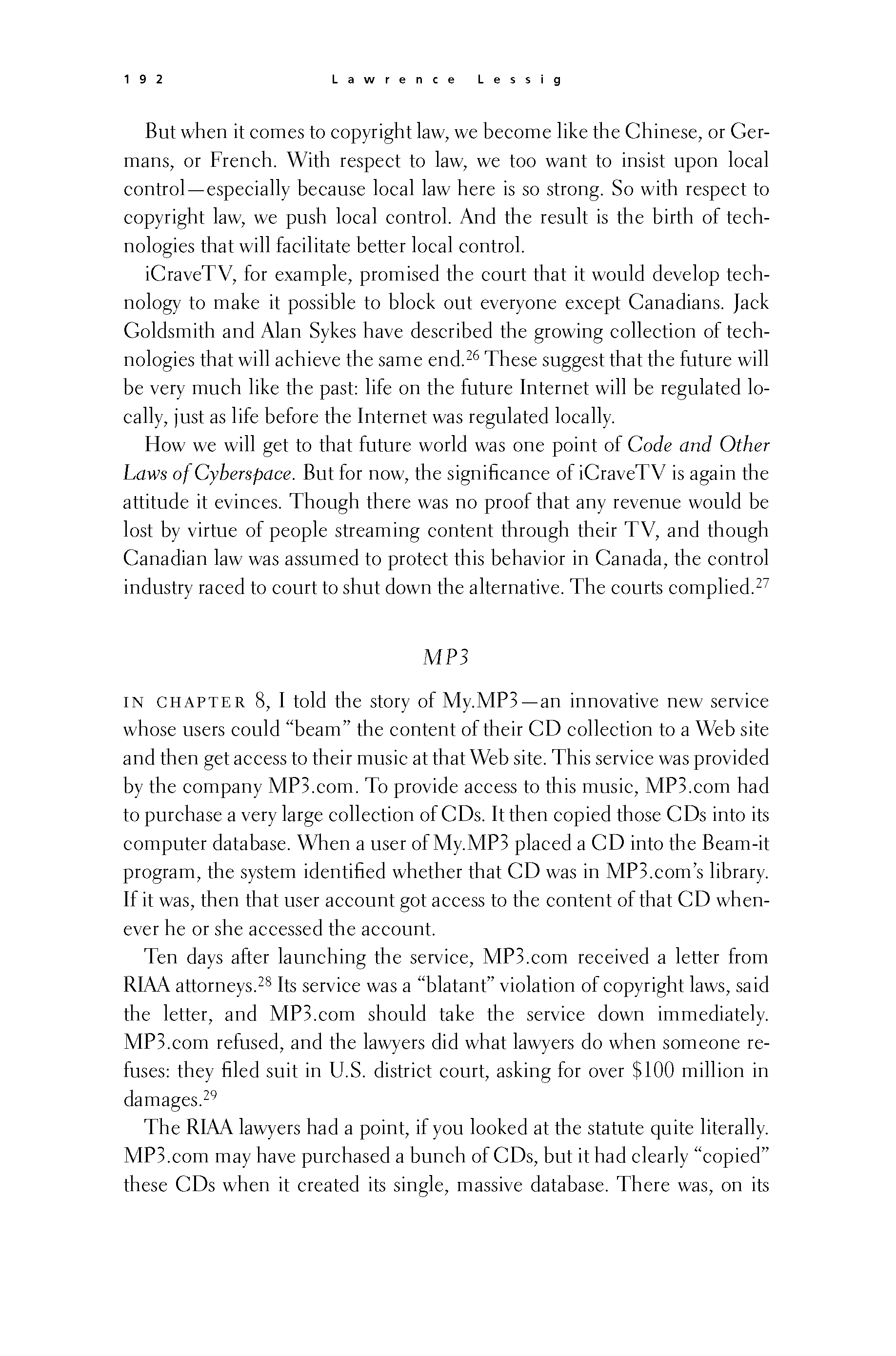 p191 _
-chap- _
toc-1 _
p192w _
toc-2 _
+chap+ _
p193
p191 _
-chap- _
toc-1 _
p192w _
toc-2 _
+chap+ _
p193
But when it comes to copyright law, we become like the Chinese, or Ger-
mans, or French. With respect to law, we too want to insist upon local
control -- especially because local law here is so strong. So with respect to
copyright law, we push local control. And the result is the birth of tech-
nologies that will facilitate better local control.
///\\\
iCraveTV, for example, promised the court that it would develop tech-
nology to make it possible to block out everyone except Canadians. Jack
Goldsmith and Alan Sykes have described the growing collection of tech-
nologies that will achieve the same end.[11-26] These suggest that the future will
be very much like the past: life on the future Internet will be regulated lo-
cally, just as life before the Internet was regulated locally.
How we will get to that future world was one point of _Code_and_Other_
_Laws_of_Cyberspace._ But for now, the significance of iCraveTV is again the
attitude it evinces. Though there was no proof that any revenue would be
lost by virtue of people streaming content through their TV, and though
Canadian law was assumed to protect this behavior in Canada, the control
industry raced to court to shut down the alternative. The courts complied.[11-27]
/tab\/tab\_MP3_/tab\/tab\
In Chapter 8, I told the story of My.MP3 -- an innovative new service
whose users could "beam" the content of their CD collection to a Web site
and then get access to their music at that Web site. This service was provided
by the company MP3.com. To provide access to this music, MP3.com had
to purchase a very large collection of CDs. It then copied those CDs into its
computer database. When a user of My.MP3 placed a CD into the Beam-it
program, the system identified whether that CD was in MP3.com's library.
If it was, then that user account got access to the content of that CD when-
ever he or she accessed the account.
Ten days after launching the service, MP3.com received a letter from
RIAA attorneys.[11-28] Its service was a "blatant" violation of copyright laws, said
the letter, and MP3.com should take the service down immediately.
MP3.com refused, and the lawyers did what lawyers do when someone re-
fuses: they filed suit in U.S. district court, asking for over $100 million in
damages.[11-29]
The RIAA lawyers had a point, if you looked at the statute quite literally.
MP3.com may have purchased a bunch of CDs, but it had clearly "copied"
these CDs when it created its single, massive database. There was, on its
[[192]]
p191 _
-chap- _
toc-1 _
p192w _
toc-2 _
+chap+ _
p193